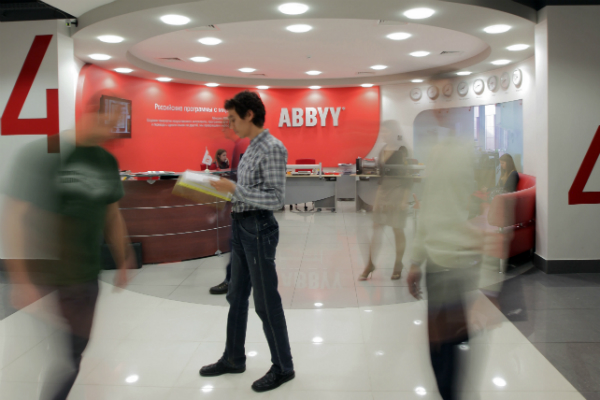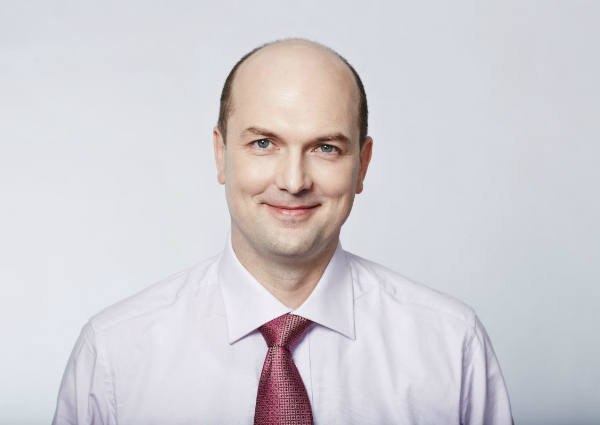Russia’s ABBYY shows how to keep ahead of the IT competition

ABBYY is now one of the world’s leading developers of IT solutions.
KommersantSince its humble beginnings in a Moscow dorm room in the 1990s, ABBYY has grown to become one of the world’s leading developers of IT solutions. Today, ABBYY’s technologies are licensed by some of the world’s largest manufacturers, including Microsoft, Acer, Panasonic and Samsung. RBTH spoke with ABBYY’s CEO Sergei Andreyev about the challenges the company faces in the new economic reality.
RBTH: Which markets are you focusing on? Are you expanding in the United States?
Sergei Andreyev: For us, all regions are important. The U.S. market remains a priority because it is more developed in terms of technology. In the U.S. competition in the technological sphere is very steep. It takes a lot of work to transfer knowledge. We are exporters, and almost 80 percent of our profits come from abroad. We get about 20 percent of our revenue from Russia and about 40 percent from the United States. Europe accounts for 20 percent, and another 20 percent comes from a combination of Asia, Africa and South America. Interestingly, sales in developing countries are growing faster than in the developed nations.
The decline of the ruble against the dollar is helping us develop new products and technologies. This is because we get higher
So this is a positive situation. Also, the main component of the cost structure for IT companies is the [ruble-based] cost of salaries of qualified specialists.
 Sergei Andreyev. Source: ABBY.ru official website
Sergei Andreyev. Source: ABBY.ru official website
RBTH: How different are the products that you offer in different countries?
S.A.: Here the question really is, what kinds of projects arise around these products.
In Russia solutions for document and data input are in demand. They are used mostly by financial organizations, state-owned corporations, and energy companies. We also have a project that is aimed at processing the results of the EGE [a standardized Russian test administered to students that is similar to the American SAT].
To complete this project on time, you must process millions of pages in a single month. And there can’t be any mistakes because a slip-up could lead to a young person failing to get into university. In Asia, we find that projects are much simpler. For example, we do a population census, which has a more relaxed deadline.
RBTH: Which new technologies and projects do you consider most promising?
S.A.: We are actively moving into the market of projects related to computational linguistics, word processing and information extraction from large streams of unstructured text.
For example, we’re helping Russian banks make quicker decisions about granting
We also work with computer vision, which is gradually transforming into completely new technologies. This can solve such tasks as software test automation for your computer. These days it’s done using a special program. At the same time, you should also assign a person to control the process, but this is expensive. It is easier to use a camera that will monitor testing.
RBTH: What projects are most in demand in the United States?
S.A.: We have a project in the oil and gas industry. In contrast to Russia where the owner gets the rights to a piece of land and is free to do with it whatever he wants, in the United States rights are sold for different layers. Different people have different rights to the first, second, fourth, fifth layers, and so on. If one of the owners wants to drill a hole in his layer, he must examine all claims and agreements. Previously, this was carried out by hand.
But these agreements are, of course, text information, and you can automate the process. We also work with a company that is engaged in providing cloud services for accounting and tracking of sales.
Customers using the system feed it with a body of data, including the provisions of their agreements – payment schedules, the terms of contracts, and special conditions. We can structure this information and analyze it. We can notify you when you need to update the agreement, or of upcoming expiration dates. Now it is a pilot project.
RBTH: In the U.S., there are many companies in your
S.A.: It lies in our development of a universal system called, ABBY Compreno, which helps the computer understand the content behind the text. Despite the fact that people speak different languages, they live in the same system of concepts. We are all very similar; we have the same conceptual framework.
Sergei Andreyev, CEO of ABBYY
A graduate of the Moscow Institute of Physics and Technology, Andreyev joined ABBYY (formerly BIT Software) as commercial director in 1991. Since becoming ABBYY’s CEO in 1999, he has supervised all aspects of production, sales and marketing, research and development, support, finance, and public relations.
Read more: Russian business incubator made the world's top 25
All rights reserved by Rossiyskaya Gazeta.
Subscribe
to our newsletter!
Get the week's best stories straight to your inbox